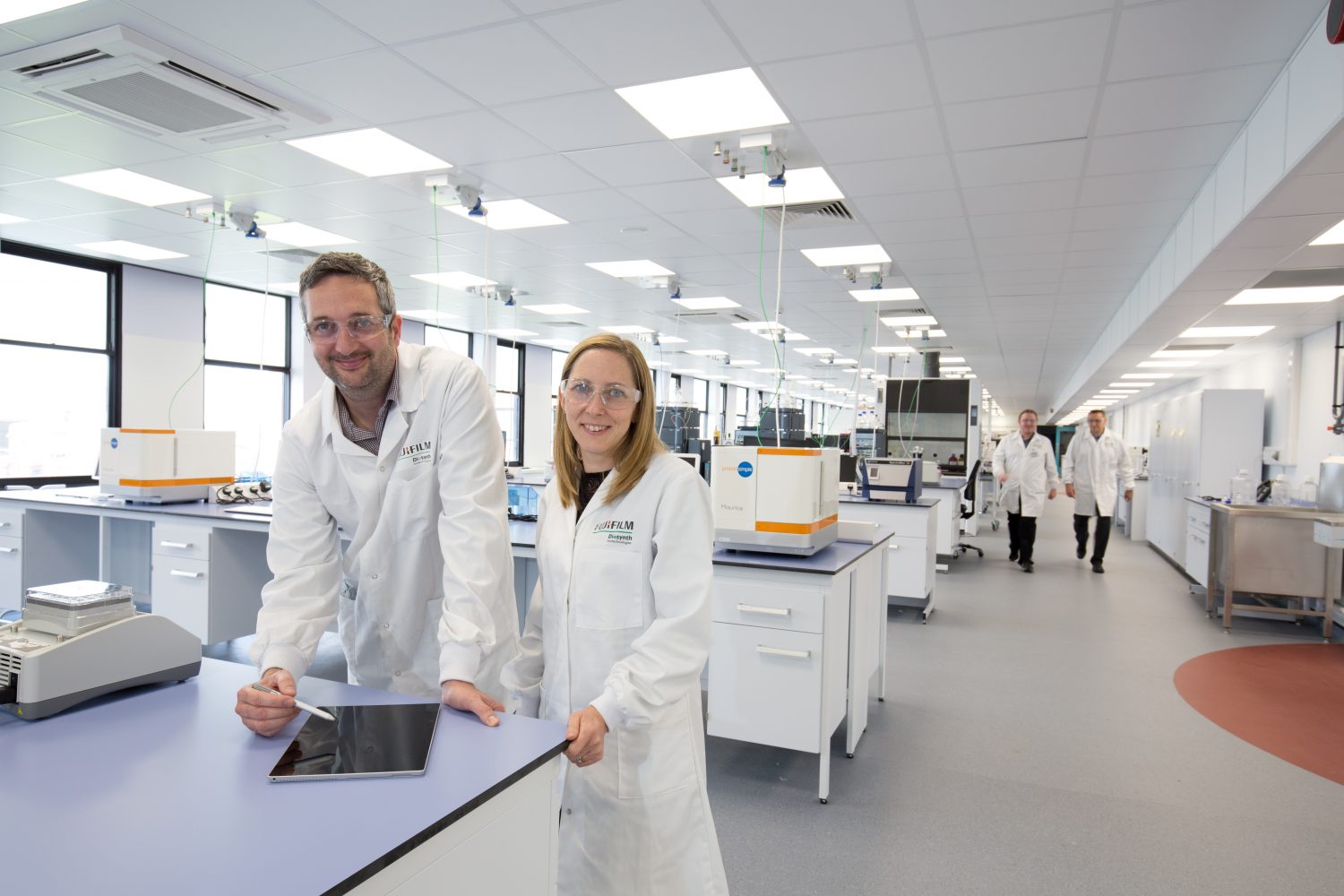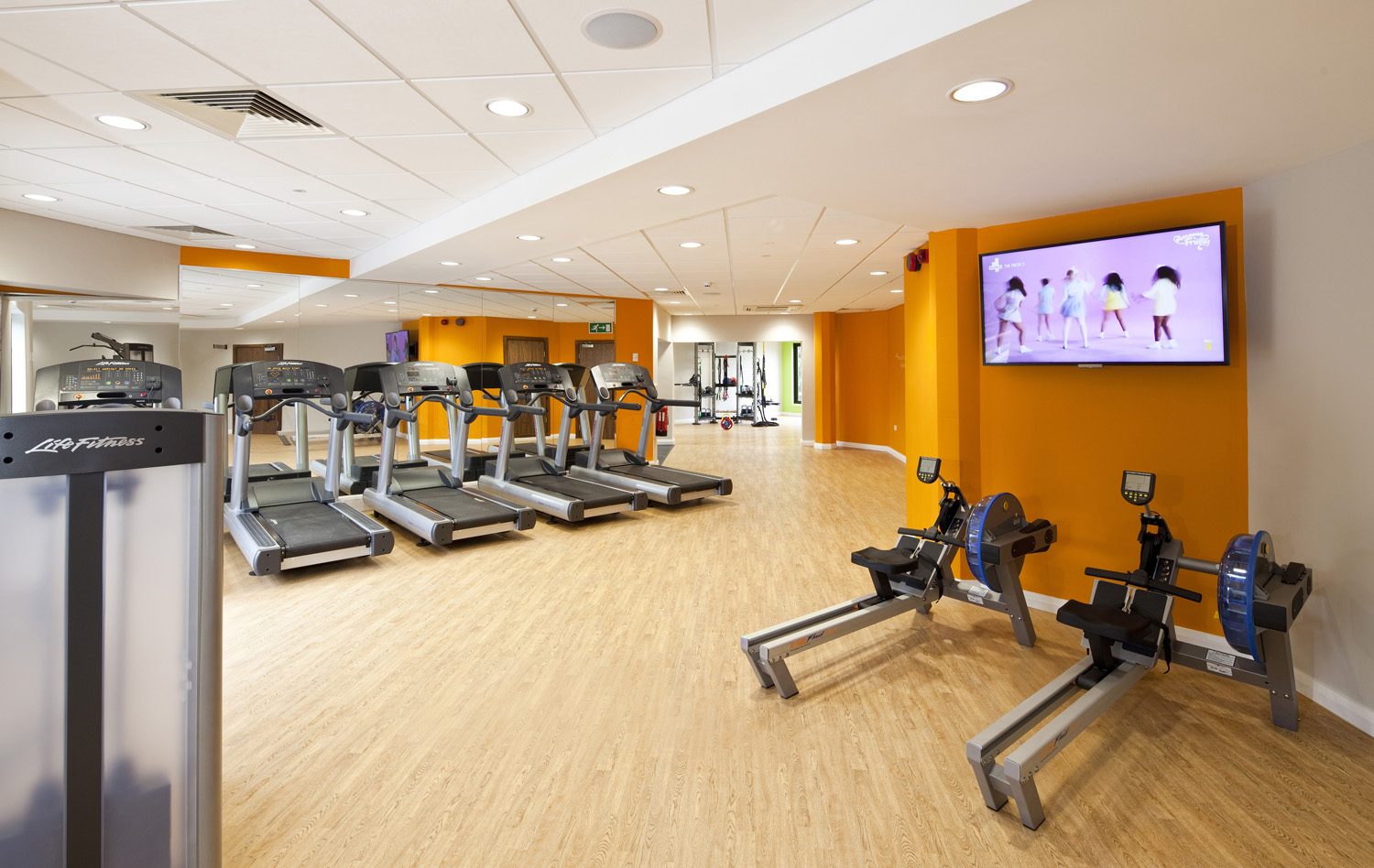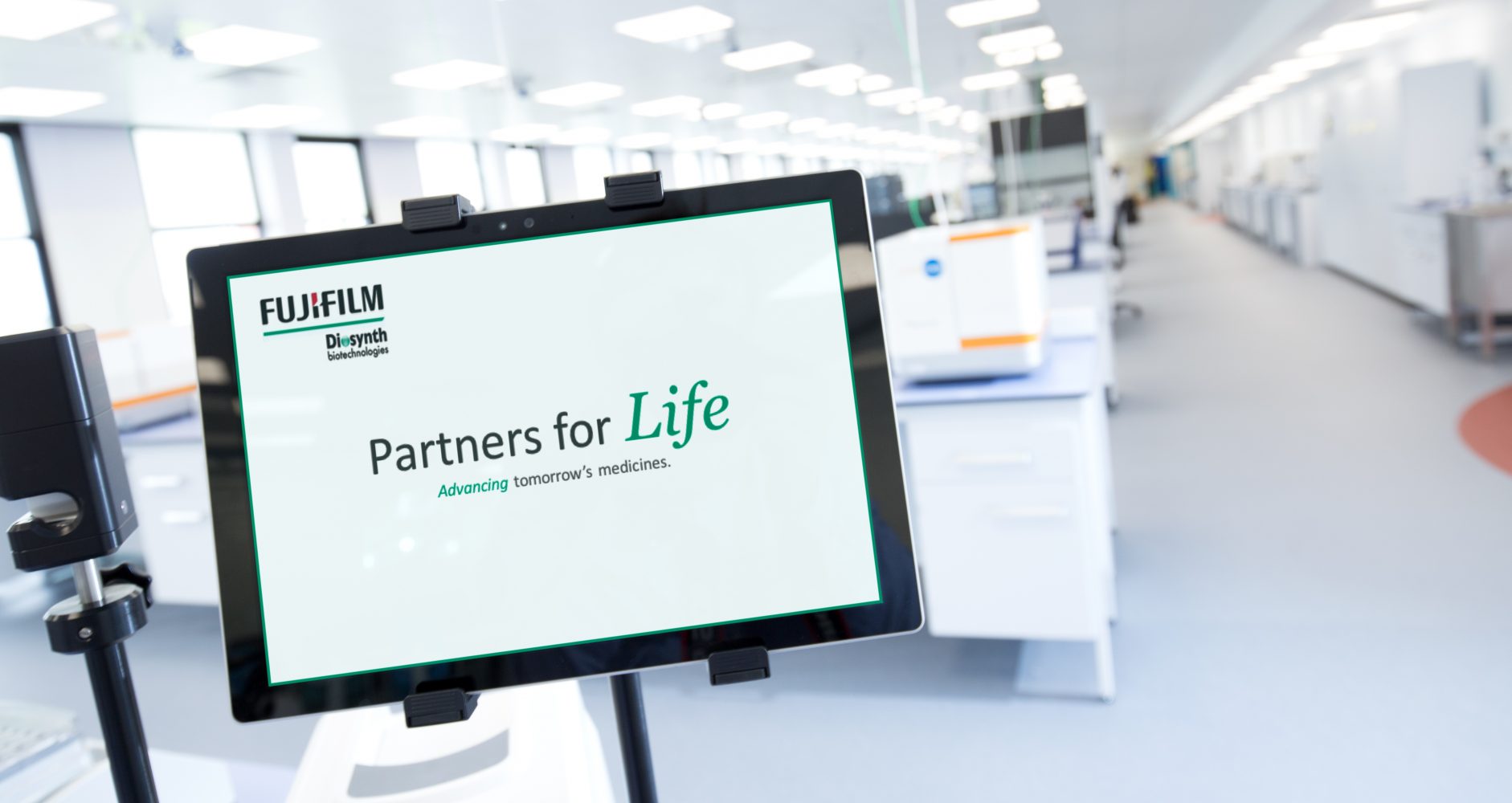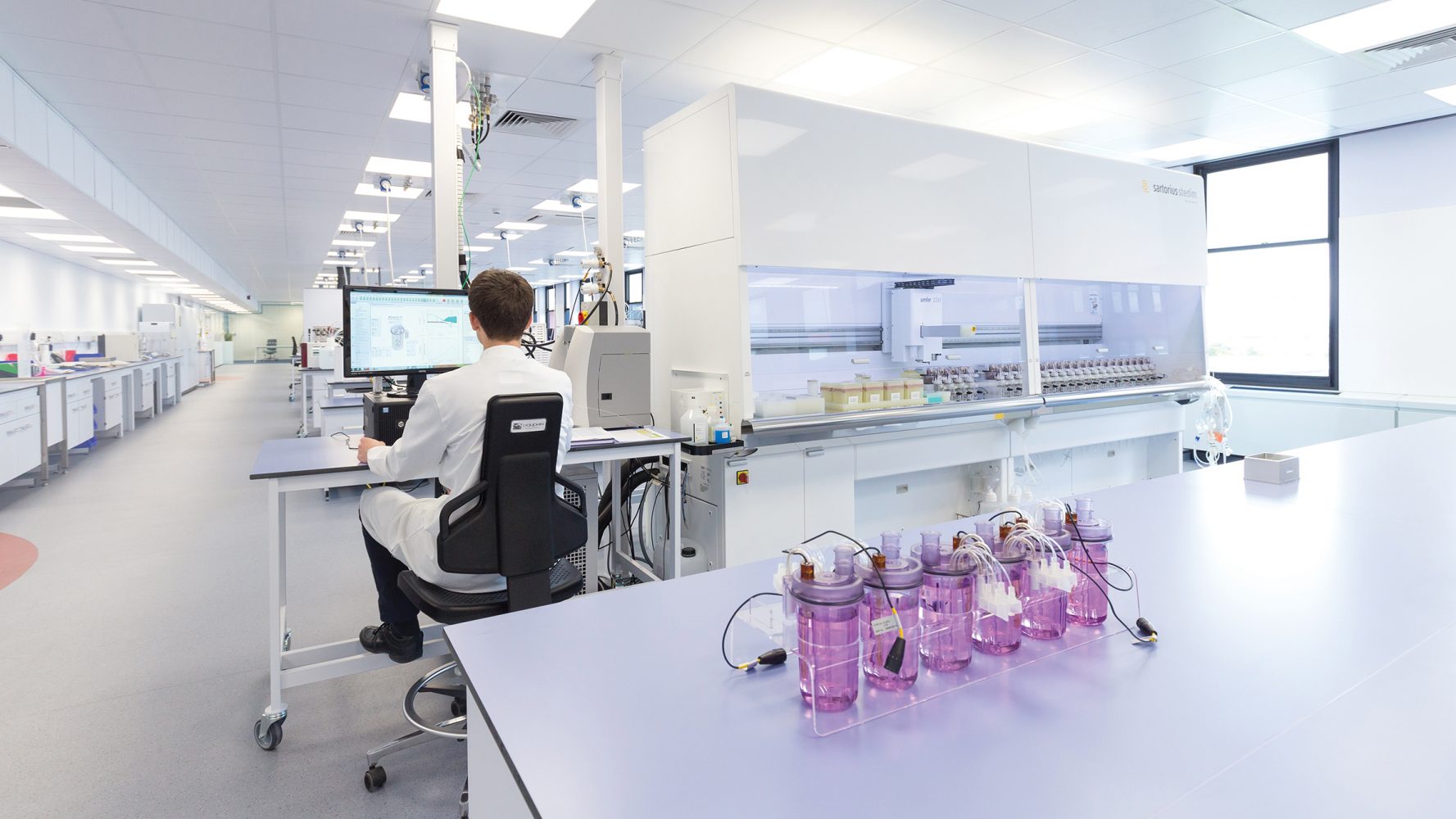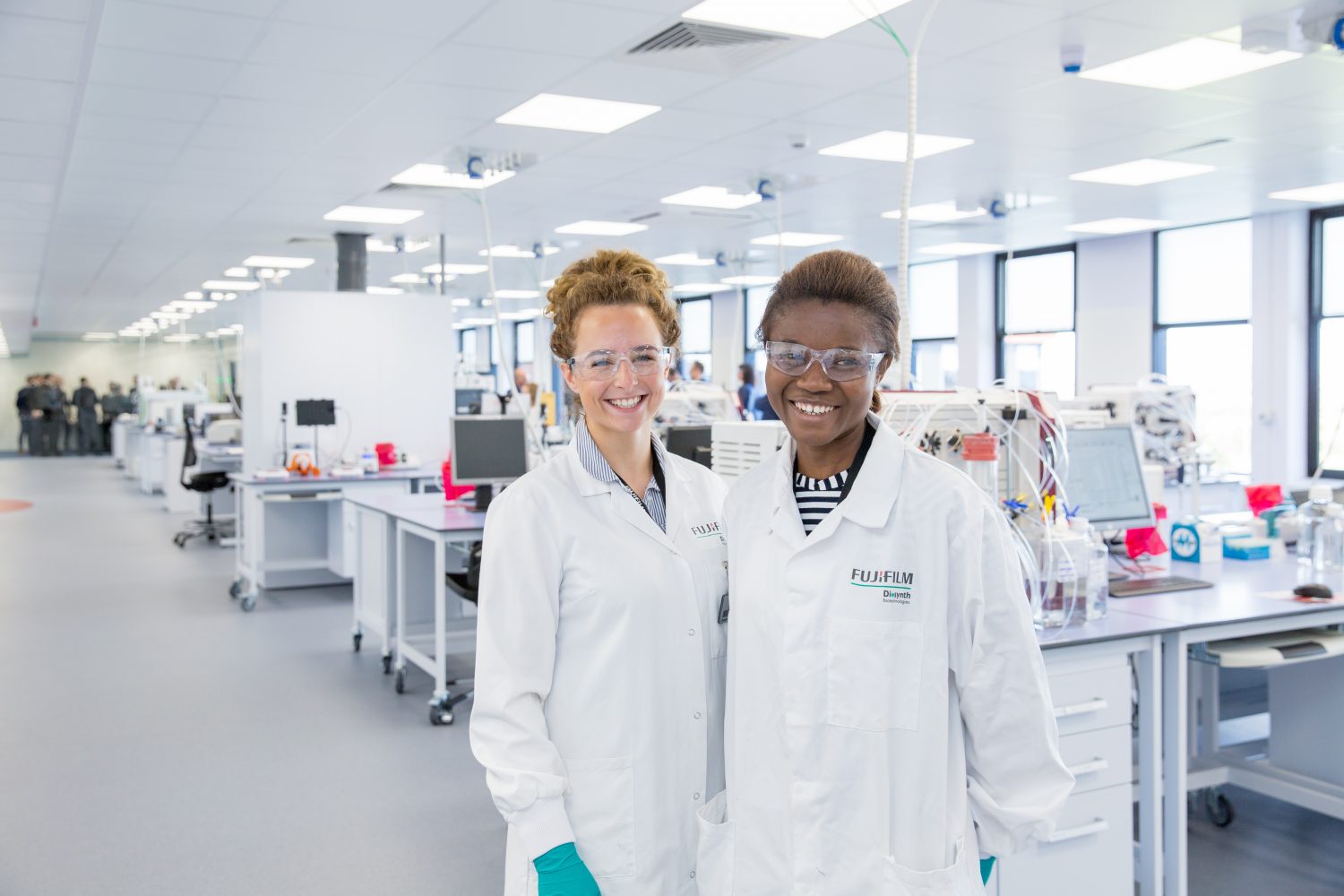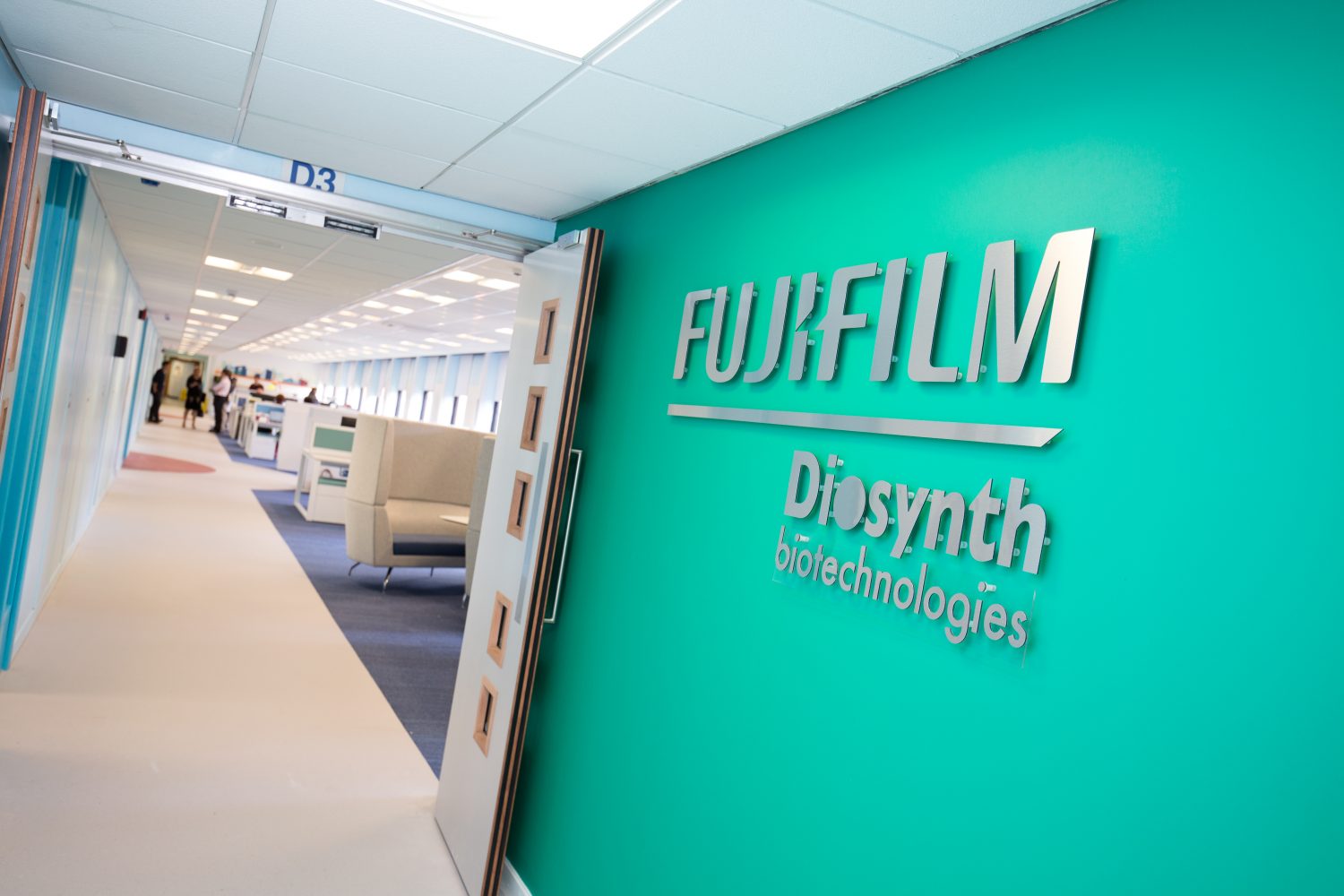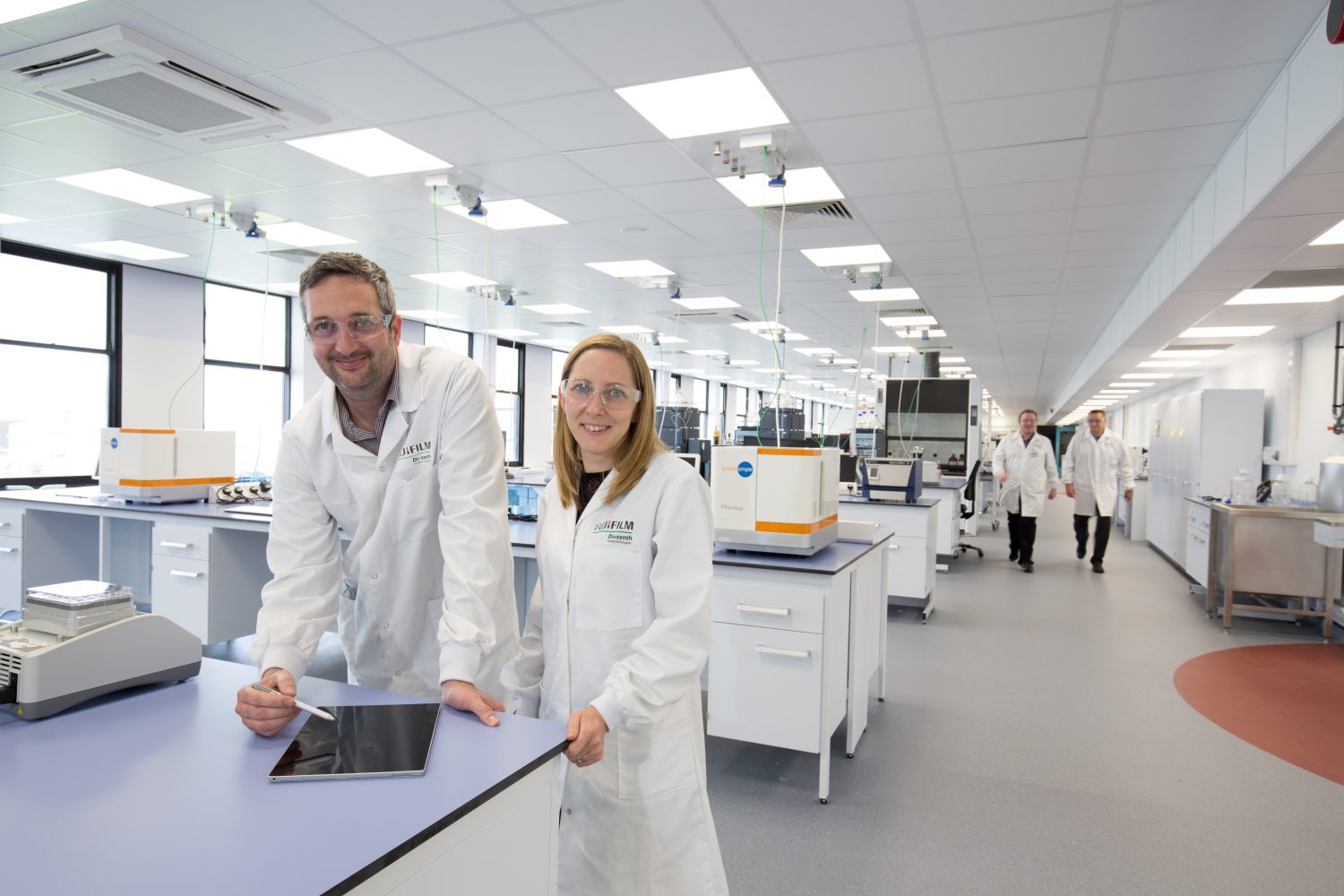Our clients are large pharma and biotech companies and about two thirds of the work carried out by the Wilton team comes from North America. Geography doesn’t tend to be a consideration for our kind of work, since the important regulatory bodies such as the Food and Drug Administration (in the US) and the Medicines and Healthcare Regulatory Agency (UK) are quite closely aligned, particularly at the drug substance production stage.
Andy Topping, FUJIFILM Diosynth Biotechnologies
FUJIFILM Diosynth Biotechnologies undertakes contract development and manufacture of biotherapeutics, with a particular focus on monoclonal antibody products at its Wilton Centre facility.
A couple of decades ago, FUJIFILM was best known as a manufacturer of 35 mm photographic film. However, with digital photography taking over, the company diversified into other areas, one of them being healthcare, which includes FUJIFILM Diosynth Biotechnologies. FUJIFILM Diosynth Biotechnologies has two sites in the UK – at the Wilton Centre and in nearby Billingham – and another two in North Carolina and Texas in the USA. The company focuses on contract development and manufacture of biotherapeutics – complex medicines that are made by natural systems – from microorganisms or mammalian cells. This is a huge growth area; biologics are emerging that treat arthritis, high cholesterol and various cancers, and many of these are monoclonal antibodies.
The company’s Wilton Centre facility was set up specifically to develop processes to produce monoclonal antibodies. The opening of the new facility saw some of the company’s experienced scientists relocate from Billingham to form the spine of the team, as well as the recruitment of new staff. Today, the team offers everything from small scale – 250 ml – development through to 200 litre processes, which are then transferred to 2,000 litre-scale production at one of FUJIFILM Diosynth’s manufacturing facilities, typically the Texas site. Andy Topping, Chief Scientific Officer for FUJIFILM Diosynth Biotechnologies, explained: “Our clients are large pharma and biotech companies and about two thirds of the work carried out by the Wilton team comes from North America. Geography doesn’t tend to be a consideration for our kind of work, since the important regulatory bodies such as the Food and Drug Administration (in the US) and the Medicines and Healthcare Regulatory Agency (UK) are quite closely aligned, particularly at the drug substance production stage. This allows companies to contract out projects to facilities with the skills and expertise to undertake the project efficiently and cost effectively, wherever they are in the world.”
“We use a very standard workflow to make the monoclonal antibody products and have been able to integrate the various disciplines – upstream cell culture, downstream purification and analytics – into one large lab, which is quite different to the way we operate on our other sites. It’s a model that works well, and one that we’d be happy to replicate,” Andy concluded.
